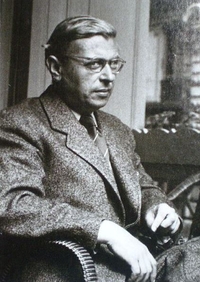Truth and Existence
Jean-Paul Sartre. University of Chicago Press, $22.5 (143pp) ISBN 978-0-226-73522-1
Ignorance, if Sartre is correct, is an intentional act, a means of avoiding the truth through sheer indifference or an act of will. Freedom is achieved through hard work and choice--both anathema to the willfully ignorant--declares the French existentialist in this short, coherent philosophical tract, written in 1948 and published only now. To prove that ignorance is bad faith, Sartre uses the example of a tubercular woman who denies her illness, pretending to be controlled by destiny yet at the same time preoccupied with the suppressed truth. Other forms of bad faith explored here are passive contemplation, innocence and abstract knowledge divorced from living reality. Accompanied by an excellent introduction, this dense, lucidly translated treatise reveals Sartre as a characteristically 20th-century figure. Van den Hoven is a professor of French at the University of Windsor in Ontario, Aronson a humanities professor at Wayne State in Michigan. (Oct.)
Details
Reviewed on: 11/02/1992
Genre: Nonfiction
Paperback - 143 pages - 978-0-226-73523-8


